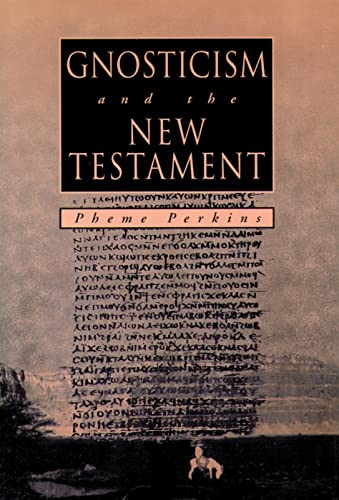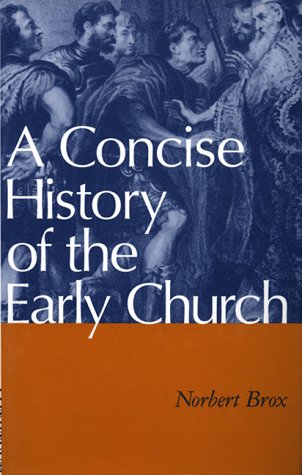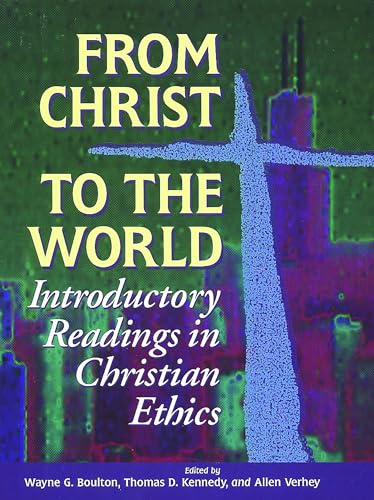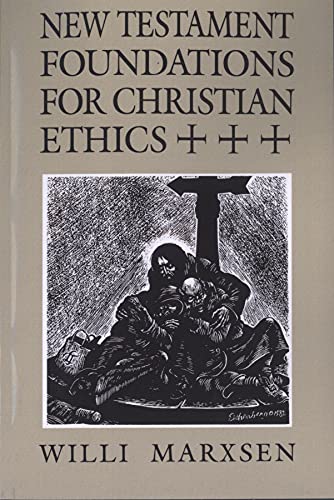The Search for Order: Biblical Eschatology in Focus
Written by William J. Dumbrell Reviewed By Dale C. Allison, Jr.The title of this useful book may be misleading. Dumbrell does not use the word ‘eschatology’ in its traditional or more common sense. That is, he is not concerned, at least first of all, with the last things—the latter days, resurrection, universal judgment, heaven, hell. Rather does Dumbrell use the word in what he calls its ‘broad sense’ to refer to ‘the goal of history toward which the Bible moves’ as well as to ‘biblical factors and events bearing on that goal’. Indeed, the focus of this book is upon ‘biblical factors and events bearing on that goal’. So Dumbrell’s work is less a biblical theology of the last things than it is an evangelical exploration of the unfolding of God’s plan for and within history.
Dumbrell begins his investigation of the divine intention as revealed in the Bible by looking at the broad history of the OT. He first reviews selected portions of Genesis—especially the opening chapters—Exodus and Deuteronomy, and then goes on to investigate the subject of kingship as found in parts of Joshua and Kings. This is followed by an examination of Zion theology and pre-exilic prophecy as represented in Kings, Amos, Micah, Isaiah 1–39 and Zephaniah. The OT section then comes to a close with an introduction to exilic eschatology—Jeremiah, Ezekiel, Joel, Obadiah, Isaiah 40–66—and a commentary on post-exilic and apocalyptic eschatology—Haggai, Malachi, Zechariah, Daniel. There is no treatment of the wisdom literature, for the focus is on the national history and Israel’s hopes.
The second half of the book, which is on the NT, follows the canonical order. There is a chapter for each of the four Gospels (Acts is treated with Luke); then comes a review of Paul (in which Romans and Corinthians garner most attention), an overview of ‘other eschatological voices’ (Hebrew, James, Peter, Jude—all but the first considered very briefly), and, finally and appropriately, a chapter on Revelation.
The book cannot be easily summarized because instead of arguing a single thesis Dumbrell rather offers overviews of many different biblical books’ themes. But several sections stand out as particularly strong. The opening pages on Genesis 1–3, wherein the author discusses the meaning of ‘the image of God’, the consequences of the fall, and the issue of the relationship between ‘very good’ and perfection, are not only intrinsically interesting but successfully raise the broad questions to which the rest of the book supplies answers. Also well done are the chapters on the Gospels: these are in effect miniature commentaries. They are not only conversant with the secondary literature but show sound judgment and exegetical insight.
This is not to say that there is no room for second-guessing. On the contrary, anyone who presumes to write about so much of the Bible will constantly be entering controversial areas about which informed readers will disagree. The present reviewer, for example, doubts that Persian influences on biblical eschatology were as minimal as Dumbrell urges (p. 135), or that Daniel 9:24–27 should not be connected with Antiochus IV Epiphanes (p. 146), or that Matthew 24 and Mark 13 have to do principally with the fall of Jerusalem, not the eschatological parousia (pp. 176, 202). Concerning this last, Dumbrell appeals to ‘Old Testament theophanic language’ and Isaiah’s prophecy of Babylon’s fall; but perhaps one of the hazards of doing biblical theology is that sometimes one can be tempted to find continuity where little exists. In the present case, Dumbrell does not acknowledge the strong reasons for surmising that certain OT expressions might have come over time to gain new, eschatological meaning.
Such small and inevitable criticisms aside, the book admirably helps the reader to recognize the theological unity in the Bible: that unity is not just in the eye of the exegete. The Search for Order would well serve undergraduates or seminarians as a text in either an introductory class to the Bible or a course on biblical theology.
Dale C. Allison, Jr.
Friends University, Wichita, Kansas







